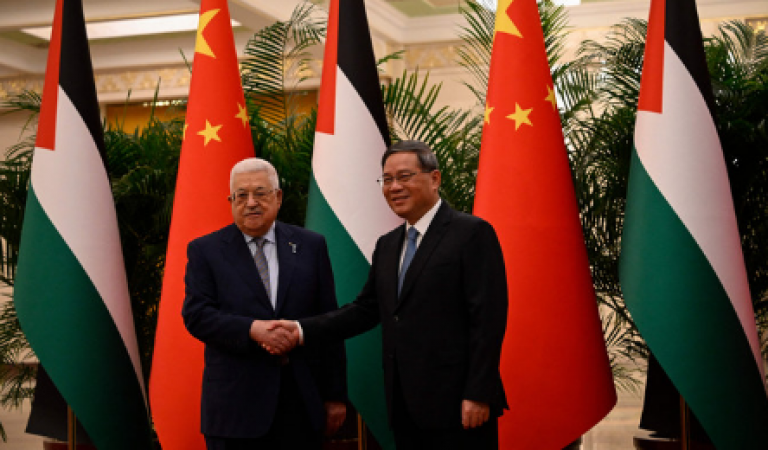
Beijing: In an effort to strengthen ties and expand its overall presence in the Middle East, Chinese Premier Li Qiang met with visiting Palestinian President Mahmoud Abbas on Thursday.
With little prior experience in foreign affairs, Li, who only assumed office this spring, referred to Abbas as "an old friend of the Chinese people" who had "important contributions to the promotion of China-Palestinian relations."
The meeting took place the day after Abbas was welcomed by Xi Jinping, the president of China and leader of the country's ruling Communist Party, with full military honours.
Also Read: North Korean missiles, according to Japan, landed in its economic waters
Following that, the parties declared the creation of a "strategic partnership," opening the door to expanding China's sway in the area.
On Wednesday, Chinese President Xi Jinping reiterated to Abbas his demand that Palestine be admitted as a "full member" of the UN.
In a meeting with Abbas in Beijing, Xi stated, "China supports Palestine in becoming a full member state of the United Nations."
As part of a joint challenge with Russia to the Western-led democratic world order, China is looking for energy resources and markets for its military and civilian exports while also promoting its version of authoritarian government.
With the appointment of a special envoy to meet with Israeli and Palestinian officials, Beijing has long maintained diplomatic ties with the Palestinian Authority.
However, its expertise in the area is primarily restricted to construction, manufacturing, and other business ventures.
Also Read: Despite "powerful resistance" from Russia, Ukraine claims victories
Such alliances are crucial to China's diplomatic strategy and give big Chinese businesses an advantage when negotiating infrastructure contracts that fall under the government's "Belt and Road Initiative," which has left many impoverished nations in crippling debt to Chinese banks.
In order to increase its diplomatic influence and gain access to advanced technology, China has also sought to establish close ties with Israel.
Since reopening its borders in the spring after a three-year virtual shutdown due to its strict "zero-COVID" policy, China has hosted an increasing number of world leaders.
Among them have been the presidents of France's Emmanuel Macron and the European Commission, Ursula von der Leyen, whose visits sparked debate over China's pursuit of its campaign to halt foreign support for Taiwan's self-government.
Following cancellation of earlier trips due to the alleged presence of a Chinese spy balloon over the US, US Secretary of State Antony Blinken is now anticipated to visit Beijing the following week. Diplomatic ties between Washington and Beijing are at their lowest point in decades due to issues with trade, technology, US support for Taiwan, and a heated competition for influence in Asia and elsewhere.
Also Read: Bangladeshi biscuits, both sweet and savoury, are very popular in the Middle East
Following that visit, Li will make his first international appearance as premier and the second-ranking member of the ruling party when he visits France and Germany.
Li will participate in the seventh round of China-Germany government negotiations and a financial summit in Paris between June 18 and 23, the Foreign Ministry announced on Thursday.